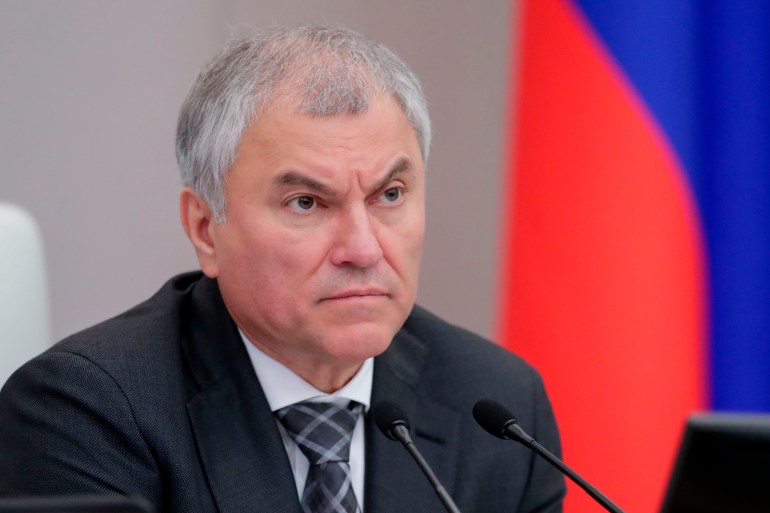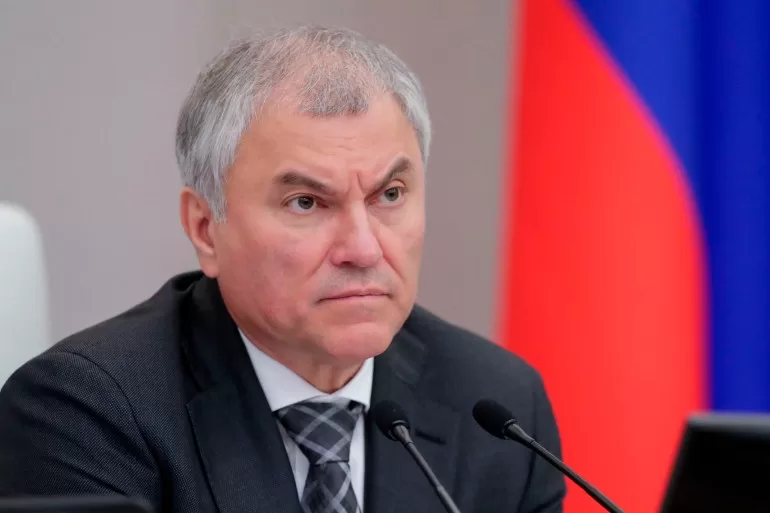The bill would allow the state to seize property from Russians who might have left the country and criticised the war in Ukraine.
“The State Duma has introduced amendments to the Criminal and Criminal Procedure Codes on the confiscation of property for public calls for activities directed against the security of the state, for discrediting the army and a number of other articles,” a statement by the State Duma, the lower house of parliament, said on Monday.
The statement said multiple officials, including Vyacheslav Volodin, the speaker of the State Duma, co-authored the bill.
The bill would allow the state to seize property from Russians who might have left the country and have criticised the war in Ukraine but still rely on revenue from renting out their houses or apartments in Russia.
Since the beginning of the war in February 2022, criticising what Moscow calls its “special military operation” in Ukraine has effectively become a crime.
Still, the new bill aims to make penalties harsher.
Volodin, a close ally of President Vladimir Putin, has called the new bill “the scoundrel law”.

“Everyone who tries to destroy Russia, betrays it, must suffer the deserved punishment and compensate for the damage inflicted on the country at the cost of their property,” Volodin said.
He added that under the law, those found guilty of “discrediting” the army also face being stripped of honorary titles.
The existing law against “discrediting” the Russian military, which covers offences such as “justifying terrorism” and spreading “fake news” about the army, is regularly used to target Putin’s critics.
Multiple activists, bloggers and other Russians have received lengthy jail terms due to the law.
Last month, Russian state media reported that one of the country’s best-selling novelists, Boris Akunin, had been charged under the law and added to a register of “extremists and terrorists”.
Another famous writer, Dmitry Glukhovsky, was given an eight-year sentence in absentia after a Moscow court found him guilty of spreading false information about the army in August.
